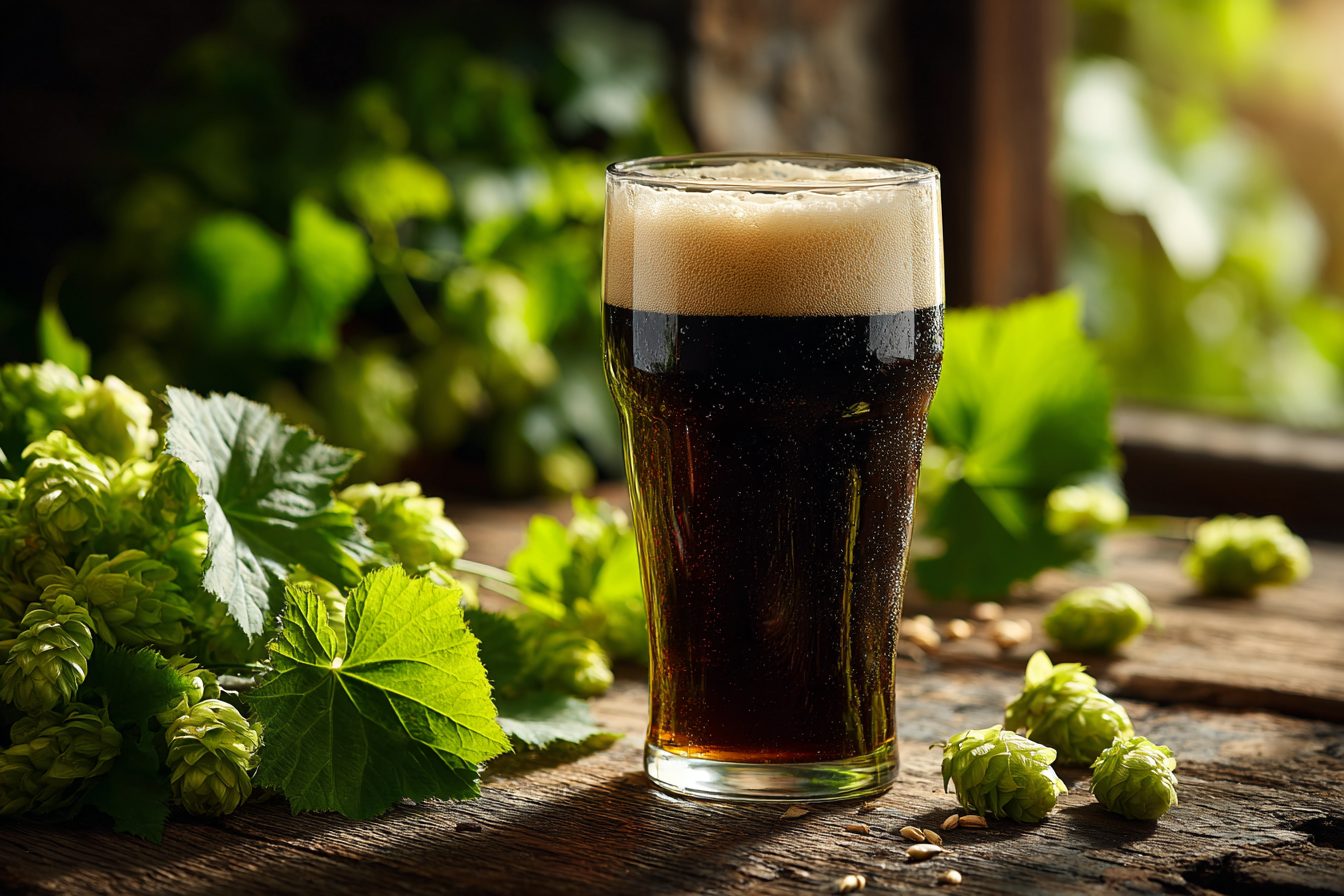Irish Extra Stout has long been celebrated for its rich, robust flavor and smooth finish, making it a favorite among beer enthusiasts worldwide. But beyond its taste and cultural significance, there’s growing interest in understanding how moderate consumption of this iconic stout might offer surprising health benefits. Like any alcoholic beverage, enjoying Irish Extra Stout responsibly is key, but when done in moderation, it may provide antioxidants, support cardiovascular health, and even aid digestion. In this article, we’ll explore these potential benefits, debunk common myths, and illustrate how to enjoy Irish Extra Stout healthfully.
Nutritional Components of Irish Extra Stout
Before diving into the potential health benefits, it’s important to understand what’s in Irish Extra Stout from a nutritional perspective. Unlike lighter beers, extra stout generally contains a higher concentration of roasted malt, giving it a fuller body and richer flavor. This also means it has slightly more calories, usually around 180-220 calories per 12-ounce serving, depending on the brand and brewing method.
In terms of macronutrients, an Irish Extra Stout is low in carbohydrates compared to many other beers, usually containing between 10-15 grams per serving. It typically has around 1.5-2 grams of protein and an alcohol by volume (ABV) ranging from 5% to 7.5%, depending on style variations. Additionally, the stout contains trace amounts of minerals like iron, potassium, and magnesium derived from the malt and brewing process.
What sets Irish Extra Stout apart are the compounds created during its distinctive roasting and fermentation process. These include polyphenols, antioxidants, and other bioactive molecules that have been the focus of numerous health studies.
Antioxidants and Polyphenols Present
One of the most exciting aspects of Irish Extra Stout is its richness in antioxidants, particularly polyphenols. Polyphenols are plant compounds naturally found in malted barley and hops. They play a significant role in combating oxidative stress by neutralizing harmful free radicals in the body.
Research indicates that darker beers like stouts and porters contain higher levels of these antioxidants compared to lighter lagers. The roasting of barley increases the concentration of melanoidins, another class of antioxidant compounds, which contribute to the stout’s dark color and robust flavor.
Regular, moderate consumption of beverages high in antioxidants has been linked to reduced inflammation and lower risk of chronic diseases. While wine is often touted for its antioxidant content, Irish Extra Stout offers a comparable, if not superior, level in the beer category. These antioxidants may help protect cells from damage, support immune function, and promote overall health.
Possible Cardiovascular Benefits
One of the most studied health implications of moderate beer consumption, including Irish Extra Stout, relates to heart health. Like other alcoholic beverages consumed in moderation, stout may offer protective benefits for the cardiovascular system.
Several scientific investigations have suggested that moderate alcohol intake can improve heart health by:
- Raising levels of high-density lipoprotein (HDL), the “good” cholesterol
- Reducing blood clot formation
- Reducing inflammation and oxidative stress in blood vessels
- Improving blood flow and reducing arterial stiffness
Specifically, the polyphenols found in malt and hops have been observed to exert vasodilatory effects, which help in relaxing blood vessels and supporting healthy blood pressure. Moreover, the iron content in stout, albeit modest, can contribute positively to blood health, especially when part of a balanced diet.
It’s crucial to emphasize that these benefits are generally seen only with moderate consumption – typically one drink per day for women and up to two for men. Excessive drinking negates any advantages and significantly increases the risk of heart disease and other health problems.
Effects on Digestion and Gut Health
Irish Extra Stout may also influence digestive health positively. The bitter compounds derived from hops stimulate gastric acid secretion and digestive enzymes, which can aid in breaking down food more effectively and promote better nutrient absorption.
Additionally, some stouts contain small amounts of soluble fiber, originating from unfiltered barley as part of traditional brewing methods, which may support gut microbiota diversity. A healthy gut microbiome is linked to improved digestion, enhanced immune function, and overall well-being.
It’s also worth noting that the carbonation present in beer can stimulate peristalsis, helping to move food through the digestive tract efficiently.
However, like with alcohol itself, moderation is vital, since overconsumption can lead to digestive disturbances, including acid reflux and gastritis.
Importance of Responsible Drinking
While exploring the health benefits of Irish Extra Stout is fascinating, it is crucial to underline that responsible drinking is the cornerstone of reaping any positive effects. The line between moderate and excessive consumption can be slim, and alcohol misuse poses significant health risks including liver disease, addiction, impaired judgment, and increased accident risk.
To enjoy Irish Extra Stout healthfully, consider the following guidelines:
- Limit intake to no more than one standard drink per day for women and two for men.
- Never consume alcohol if you are pregnant, underage, or have medical conditions contraindicated with alcohol use.
- Always pair stout consumption with food to slow alcohol absorption and reduce gastrointestinal irritation.
- Stay hydrated by drinking water alongside beer.
- Avoid binge drinking and monitor your body’s responses to alcohol.
By respecting these principles, the potential health benefits of Irish Extra Stout can be safely enjoyed without unintended negative consequences.
Myths Versus Facts
There are many myths surrounding the health implications of stout and beer in general. Let’s clear up some of the most common misunderstandings.
Myth: Irish Extra Stout Builds Immunity Strongly
Fact: While antioxidants in stout help combat oxidative stress, drinking beer is not a cure-all for immunity. Excessive alcohol can suppress immune function.
Myth: Stout Causes Weight Gain Instantly
Fact: Like any caloric beverage, stout adds calories which can contribute to weight gain if consumed excessively. However, moderate drinking combined with a balanced diet is unlikely to cause rapid weight gain.
Myth: Beer Is Bad for Your Heart
Fact: While excessive drinking raises heart risk, moderate consumption of Irish Extra Stout can offer some cardiovascular benefits due to its antioxidants and positive effects on HDL cholesterol.
Myth: Stout Can Replace Nutrients or a Balanced Diet
Fact: Stouts contain some nutrients, but they should never replace nutrient-rich foods. They are best enjoyed as part of a diverse and balanced diet.
Enjoying Stout Healthfully
Irish Extra Stout offers more than just a rich and satisfying drinking experience. When consumed thoughtfully and moderately, it can contribute to antioxidant intake, support heart health, and aid digestion. The key lies in balance and responsible enjoyment—savoring each pint slowly, pairing it with nourishing food, and appreciating the craftsmanship that goes into each brew.
If you’re interested in trying Irish Extra Stout for its potential benefits, look for quality brews that maintain traditional ingredients and brewing techniques. Remember that individual responses to alcohol vary, and consulting a healthcare provider is recommended if you have any underlying conditions or concerns.
Ultimately, Irish Extra Stout remains a beloved beverage grounded in heritage, flavor, and now, a deeper understanding of how it may fit into a health-conscious lifestyle. So go ahead—raise your glass, enjoy the moment, and toast to health with intention.







